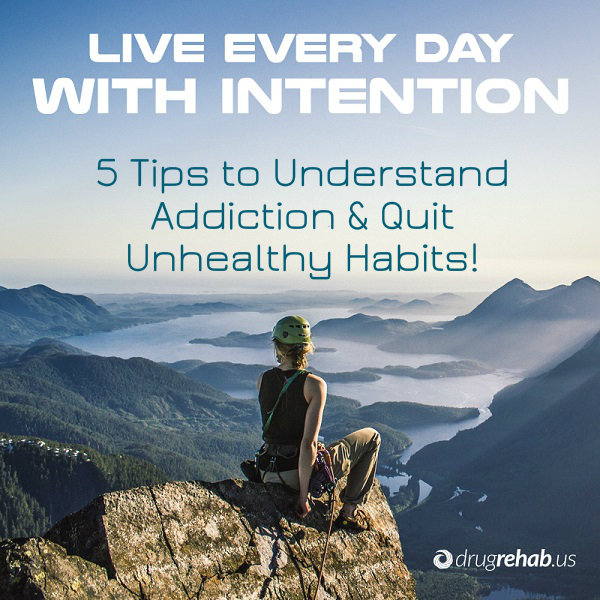Every recovering alcoholic or addict knows that each day of sobriety is a reprieve from active addiction. Active addiction is a chronic illness that may ultimately kill you. If you are an addict, you know that to drink or drug is to die.
Living life sober can be full of many challenges that can sometimes threaten sobriety. When faced with a diagnosis of terminal illness, the battle to stay clean and sober, no matter what, intensifies.
Personal Story Of John Eggers’ Terminal Illness Positively Redefining His Life
John Eggers, a 48-year-old attorney from Irvine, CA was diagnosed with glioblastoma, an aggressive form of brain cancer. There is no cure for his cancer, and the prognosis is poor. Without treatment, he would have approximately three months to live. With treatment, doctors predict his remaining life expectancy is 12 to 15 months. Experts say that less than 10 percent of glioblastoma patients survive five years after diagnosis.
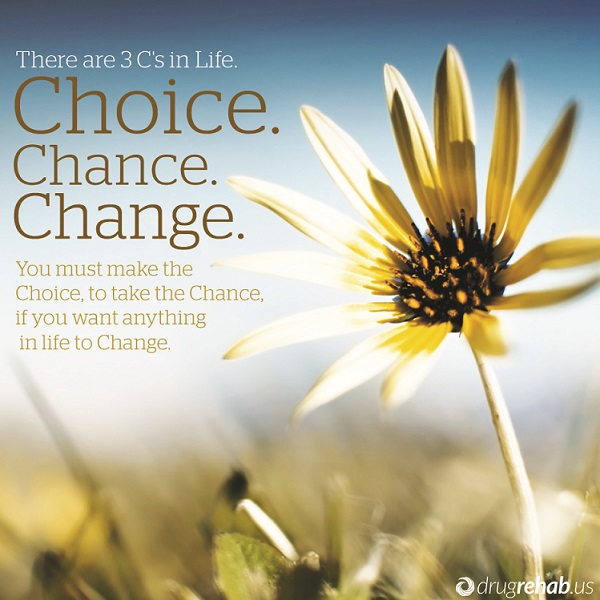 His symptoms came on suddenly one day after a trip to the gym. He lost feeling in his limbs and couldn’t speak. He suffered a seizure. A brain tumor was discovered, and he learned that he had a terminal form of cancer.
His symptoms came on suddenly one day after a trip to the gym. He lost feeling in his limbs and couldn’t speak. He suffered a seizure. A brain tumor was discovered, and he learned that he had a terminal form of cancer.
Eggers has been video blogging his final months of life for KTLA while he shares his experiences and checks things off his bucket list. Some of the items he has already been able to do include meeting Vice President Joe Biden, traveling to Europe and skydiving. He has also appeared on a TV show and met his favorite band, Depeche Mode. Living with terminal illness, Eggers is redefining his life.
Eggers admits that before his illness, he led a life driven by self-centeredness and not much regard for others. Faced with his own death, that has all changed. John has raised funds for families of others with cancer, and he has worked pro bono to help families of sick children stand up to insurance companies.
Trying To Escape Reality Through Opiate Addiction
Recently he was given opiates for pain but began abusing them to cope with depression and anxiety. Not many people would blame a dying man for wanting to escape from reality. But if you’re in recovery, you know that abusing drugs doesn’t make problems go away. It only postpones them or creates new ones.
In a recent video blog, he stated, “My name is John Eggers and I am a drug addict.” John decided to check into a treatment facility to beat his addiction, because he knew the drugs could kill him before the cancer did. As he pursues a life free of drugs, John hopes to be a powerful example to other addicts who are battling cancer.
And he wants to die drug-free.
Choosing Sobriety No Matter What
Eggers describes his addiction as “a very dark place,” a place beyond the comprehension of most people. He says the fact that his lifespan is short is acceptable to him, but that what isn’t acceptable is wasting any more of the time he has left on opiates or other drugs.
Newly out of treatment, Eggers continues to document his journey and his struggles. One side of his face is paralyzed since brain surgery, and at times he has difficulty choosing words as he speaks. But his desire to be clean and sober is unwavering.
The natural reaction for a drug addict or alcoholic when faced with extreme stress is to turn to chemicals, and there isn’t much greater stress than being faced with your own death. If you’re an addict, turning to mind-altering substances is not bad behavior. It’s doing what comes naturally. But it’s possible to recover from addiction to drugs, and John is making that choice today. Choosing recovery is making a conscious choice to go against the natural urge to use and abuse drugs and alcohol. No matter what.
In the case of John Eggers, he is choosing sobriety in spite of a death sentence, and he is using his final days to carry the message of a drug-free life. He hopes to inspire others through his video blog. If he can stay sober while he is facing a great deal of pain and his own mortality while he journeys through the dying process, others can stay sober too—no matter what they are facing.
YOU CAN DO THIS!
19 Feb 2015
How Does Journaling Help Addiction Recovery?
If you have made it through a drug or alcohol addiction treatment program and are now sober, congratulations are in order. You should feel proud of your accomplishment. You should also continue to work at your sobriety.
Recovery is a lifelong process and if you let it slide, you will pay the consequences. There are many ways you can strengthen your sobriety including finding meaningful activities and relationships to fill your life. One activity you may not have considered, but should, is journaling.
What Is Journaling?
Journaling simply means personal writing done on a regular basis. This could mean writing every day, every other day, or once a week. Journaling is always personal, but it can be creative as well. It should not be a simple record of what you do each day; it should be a reflective exercise.
You can write about anything really, but a traditional journal includes reflections on the day’s activities as well as reflections on past experiences. A journal can also include creative writing exercises, fiction writing and poetry. The important part of journaling is that you do it regularly.
Journaling For Addiction Recovery
 Journaling can be a useful tool for anyone with any kind of life experiences, but for an addict in recovery it is particularly powerful in strengthening sobriety. Use your journal to reflect on your past as an addict, to puzzle through the chaos of your life with addiction and to record your accomplishments in recovery.
Journaling can be a useful tool for anyone with any kind of life experiences, but for an addict in recovery it is particularly powerful in strengthening sobriety. Use your journal to reflect on your past as an addict, to puzzle through the chaos of your life with addiction and to record your accomplishments in recovery.
Write about your daily battles to resist cravings and you will find your burden is lifted, even just a little bit. Record and reflect on your interactions with other people and how you are progressing at rebuilding damaged relationships. Write creative pieces like fiction or poetry if you find it clears your mind and gives you something interesting to do.
The Benefits Of Journaling
As an addict, your journal will help you reflect and organize your thoughts, feelings and experiences. This can be a powerful way to heal from your disease. Research has found that writing is beneficial for everyone, not just addicts. Take advantage of the healing power of journaling to help you become well again:
- Cope with trauma – Research has found that when people who have suffered traumatic experiences write about them, they are healthier, both physically and mentally.
- Beat stress and other negative emotions – When you write about what you are feeling, it helps to relieve those emotions. Write when you are angry, stressed, depressed or anxious.
- Make sense of yourself – Writing is a great way to get to know yourself better and to make sure you understand your complex thoughts and feelings.
- Solve problems – Clarifying your thoughts and feelings can help you to solve problems that are going on in your life and causing you worry.
Getting Started
There are so many benefits to writing. Why not get started right away? You can write on your computer, but using a pen and paper is also satisfying. Choose a notebook or nice journal and your favorite pen. Next, set aside at least 15 minutes for uninterrupted writing. Commit to those 15 minutes each day for one week. If you are skeptical about the process, promise yourself to at least try it once a day for a week. By the end of the week you may just be convinced to keep going.
When you start, write about whatever comes to mind. Don’t be afraid to write about your deepest thoughts and emotions. Remember that no one else needs to read this. It is for you alone. When you keep that in mind, and really let go, you will find that the healing power of your journal is immense.
See Our Other Posts On Alternative Therapies For Recovery
Addictions come in many forms, ranging from the more obvious examples such as heroin or cocaine addiction right through to more subtle forms such as food, sex or social media addiction.
Although they might seem like distinct issues, they’re all described by the word addiction because they share many similarities, and they can all be helped in the same basic way. Writing in the U.K. newspaper The Telegraph, therapist David Smallwood shares five tips for understanding addiction and overcoming unhealthy habits.
Tips For Understanding Addiction And Quitting Unhealthy Habits
1. Determine Your Vice
The fact that not all addictions conform to the stereotypical image of persistent drug or alcohol abuse means it’s not as easy as you may think to work out whether you have an addiction or what the subject of it is. Remember that more socially acceptable activities, such as drinking cup after cup of coffee, working 12-hour days, going to the gym every day and eating sugar or fat-laden foods can also be the subjects of addictions. Smallwood suggests that asking a friend to critique your lifestyle may reveal some issues you aren’t aware of, even if it isn’t always a pleasant experience.
2. Learn And Avoid Your Triggers
Compulsive behaviors are a core feature of addiction, and these compulsions are brought on by internal and external “triggers.” These are feelings or situations that lead you to crave your substance or activity of choice, such as loneliness, anger, exhaustion, stress, depression or hunger. Once you identify the factors that are most crucial in creating your cravings, the goal is to break the link between the triggers and the resulting behavior. For example, if you feel stressed or irritable, you should consider calling a friend or family member, taking deep breaths, having a warm drink or taking a calming walk. Smallwood emphasizes the importance of breakfast; if you skip it, mounting hunger cravings throughout the day may be misconstrued as cravings for your substance or activity of choice.
3. Practice Mindfulness And Stay In The Moment
The basic premise of mindfulness—staying “in the moment”—is a useful tip for managing anxieties associated with attempting to remain abstinent. The goal is to focus on the now rather than getting caught up in the past or future; in Smallwood’s words, “Focus on what you are doing, rather than what you are not doing.” Take a walk and focus on the sensory information you’re absorbing; pay attention to the vibrant colors and silky textures of flower petals or the chirping of courting birds rather than being lost in regrets from the past or fears about the future. Practice meditation to improve this skill: simply sitting for 20 minutes or so and trying to focus on one thing (such as your breathing) can help empty your thoughts and bring about mindfulness.
4. Tackle The Underlying Problem
One common problem you may encounter when trying to overcome addiction is “cross addiction.” You might quit smoking, for example, only to “fill the gap” by overworking or overeating. In reality, the real cause of addiction is something deeply rooted, not the specific substance or behavior. If you switch from smoking or drug abuse to overeating, you’re just swapping one addiction for another. Smallwood jokingly compares this to swapping deck chairs on the Titanic; it’s not exactly the same situation, but you’re still heading for trouble on the same boat. Identify the root cause of your addiction (addiction treatment professionals are invaluable in this area) and work on overcoming it, rather than allowing it to manifest in a new way.
5. Set Goals
If you’ve resolved to overcome addiction, it’s important to establish what you’re trying to achieve. Setting definite goals gives you something to work toward, and later down the line, it can help you appreciate how far you’ve come. Smallwood suggests choosing a point of time—two months in the future, two years in the future, whenever suits you—and writing yourself a letter detailing your current lifestyle and how you’d like it to have changed at your chosen date. Put it in an envelope and keep it somewhere prominent and noticeable, with your chosen date written on it. The closed envelope will serve as a reminder of your goals, and when the date arrives, you can read the letter and see if you’ve been successful in your intentions. Taking a step back and examining your lifestyle like this can give you the motivation to keep working to improve yourself and your life.
You DO Have What It Takes To Overcome Addiction!
Beating addiction isn’t easy. It’s a fiendish enemy that can hide in the shadows, change appearances like a chameleon and come back into the fray when you least expect it. But that doesn’t mean you can’t do it, and with the right support and a positive mindset, you do have what it takes to make a change in your life. These five tips don’t cover every aspect of the issue, but they provide a useful, at-a-glance run-through of the core steps in overcoming addiction. If you keep these lessons in mind and work to implement them in your life, you’ll soon be on your way to regaining control and getting your life back on track.
Inspirational Recovery Posts – Be Informed & Inspired!
20 Oct 2014
How To Face Your Fears Of Being Sober
Admitting to having a problem with drinking or drugs and then getting help are big steps to take. Fear is what holds most people back. There are many fears associated with going to rehab or therapy for addiction. You may be eager to get sober, but afraid of failing. You might fear what your friends, family and coworkers will say and think about you.
Most of all you are probably afraid to be sober. After using drugs or alcohol to silence your voices, cope with troubling emotions or to self-medicate, the idea of being sober is terrifying.
Common Sobriety Fears
There are many reasons to fear getting sober. Your reasons may be personal, but you will likely recognize yourself in these common fears of being sober:
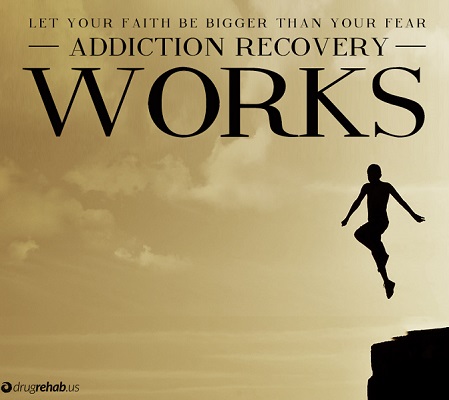 I’ll never have fun again – For some addicts, substance abuse starts and ends with partying. How can you possibly go out with your friends and have a good time if you have to sip a coke all night long? This is a valid and reasonable fear. Your ideas about what is fun will need to change when you get sober.
I’ll never have fun again – For some addicts, substance abuse starts and ends with partying. How can you possibly go out with your friends and have a good time if you have to sip a coke all night long? This is a valid and reasonable fear. Your ideas about what is fun will need to change when you get sober.
- I won’t be able to cope – People abuse substances for a variety of reasons, but largely as a coping mechanism. Whether you drink or use drugs to suppress trauma, cope with social anxiety, deal with stress, or avoid the symptoms of a mental illness, sobriety will mean finding new coping mechanisms.
- I’ll have to feel – Drinking and drugs are good at helping you ignore your feelings of all kinds. You will have to face your feelings when you get sober. The good news is if you get professional help you will have caring people to guide you through the process of recognizing your emotions.
- I’ll probably fail and relapse – Fear of failing at sobriety is a major roadblock, but you have to realize that nearly all addicts relapse once or more. Stop seeing it as a failure and look at relapse as a hurdle to clear, and one that may trip you from time to time.
Tips On How To Get Over The Fear Of Sobriety
- Fear of sobriety is normal, but if you want to save your life and get out of the shadow of addiction you have to face it and get over it – Any fear can be conquered by first facing it. Think about what scares you and put it into writing. Knowing exactly what it is that scares you can help you better face it.
- Next, talk to someone else about it – Even if you only have one person in your life you trust enough with your feelings, that is enough. Talk to this person about wanting to get sober, but being afraid.
- Another powerful way to overcome a fear is to imagine the worst possible outcome and then compare it to what is most likely – You’ll find that your fears are usually worse than what reality suggests. You’re afraid that all your friends will walk away from you when you’re sober. Is that really likely though? Maybe a few will, but those that care about you will support you.
- Finally, take one small step toward facing your fear – Instead of diving head first into rehab, schedule one therapy session or go to one support group session. This small exposure to your fear will actually lessen it. Everything you fear is scarier in your imagination than in reality. Take baby steps toward getting sober and eventually you will realize that you have conquered your fear.
Discover How To Be Empowered Over The Shame Of Addiction – You Are Worth It…You Always Have Been – It’s Time Now To Realize That!
29 Sep 2014
How To Use Activities To Help Overcome Addiction
It may sound too simple, and nothing can replace a good addiction treatment program, but engaging in new activities and hobbies can be a powerful way to help overcome addiction. To truly get sober and into successful recovery from your addiction, you need high-quality care from experienced professionals, support from friends and loved ones, and hard work on your part. But there are also tools and resources to help support your recovery and these can make all the difference. Consider getting involved in a new activity to aid your sobriety.
Avoiding Relapse
Recovering from addiction means facing a long-term battle with urges to use again. No matter how far you get in your sobriety, there will always be a little voice telling you to turn back to substances. It may not be there every day, but it will be there at your low points and when you feel your worst. There are many professional and useful suggestions for how to resist these urges: know your triggers and avoid them, cut ties with old friends, lean on sober friends, keep up with therapy and stay healthy. These are great ideas, but add one more: get involved with new activities.
Hobbies For Recovery
 Hobby is a quaint and old-fashioned word, but it refers to doing something, anything, that is meaningful to you. It could be something you used to do, but lost sight of during your substance abuse period. Or it could be something entirely new, something you always wanted to try, but never got around to doing.
Hobby is a quaint and old-fashioned word, but it refers to doing something, anything, that is meaningful to you. It could be something you used to do, but lost sight of during your substance abuse period. Or it could be something entirely new, something you always wanted to try, but never got around to doing.
As an addict you turned to drugs or alcohol as a source of meaning in your life. Maybe it filled a void you always felt you had. Maybe it helped you to suppress trauma that has been chasing you since childhood. Maybe you were lonely and being high or drunk helped you forget that fact. Meaningful activities can play the same role, but in a healthy and beneficial way. They bring meaning to your life and help you connect with others. When you have something to which you devote your time and energy, you leave less room for the drugs and alcohol of your past.
Getting Involved
To get involved in a new activity means you need to figure out what you want to do. Reflect before you get started and think about the kinds of things that have always interested you. Is it music? Art? Working with animals? Helping others? Tap into what moves you and then start trying things. You may need to try a few new hobbies or activities before you find the one, but there’s nothing wrong with that. You might even make some new friends along the way. Look to your community’s ongoing education programs, a local community college, your church or volunteer organizations to find the activities you want to try and then dive in.
Beware Of Substitute Addictions
As you begin your new adventure in sobriety, be aware of the possibility of a substitute addiction. As an addict you have a natural tendency to go overboard and become obsessive. Watch yourself for signs that you are getting addicted to your new activity. Be aware of how much time you spend on it and if you are neglecting other responsibilities. Your new hobbies should help you, not become a substitute for drugs and alcohol.
As long as you have the support and professional care you need for your addiction, adding a hobby or new activity can only help you. The meaning and fulfillment you find could be just what you need to help you down the path to long-term sobriety.
23 Sep 2014
How To Cope When Your Child Is An Addict
Having an addict in the family is never easy. When that addict is your child, whether a teen, young adult or fully-grown adult, the impact on you as the parent is devastating. First you feel immense guilt and pain because your child is suffering. You may also face a lack of support from your loved ones. Finally, your mental, emotional and physical health may begin to deteriorate. How do you cope with these issues after you have tried to get help for your child?
Living With Pain And Guilt When Your Child Is Addicted
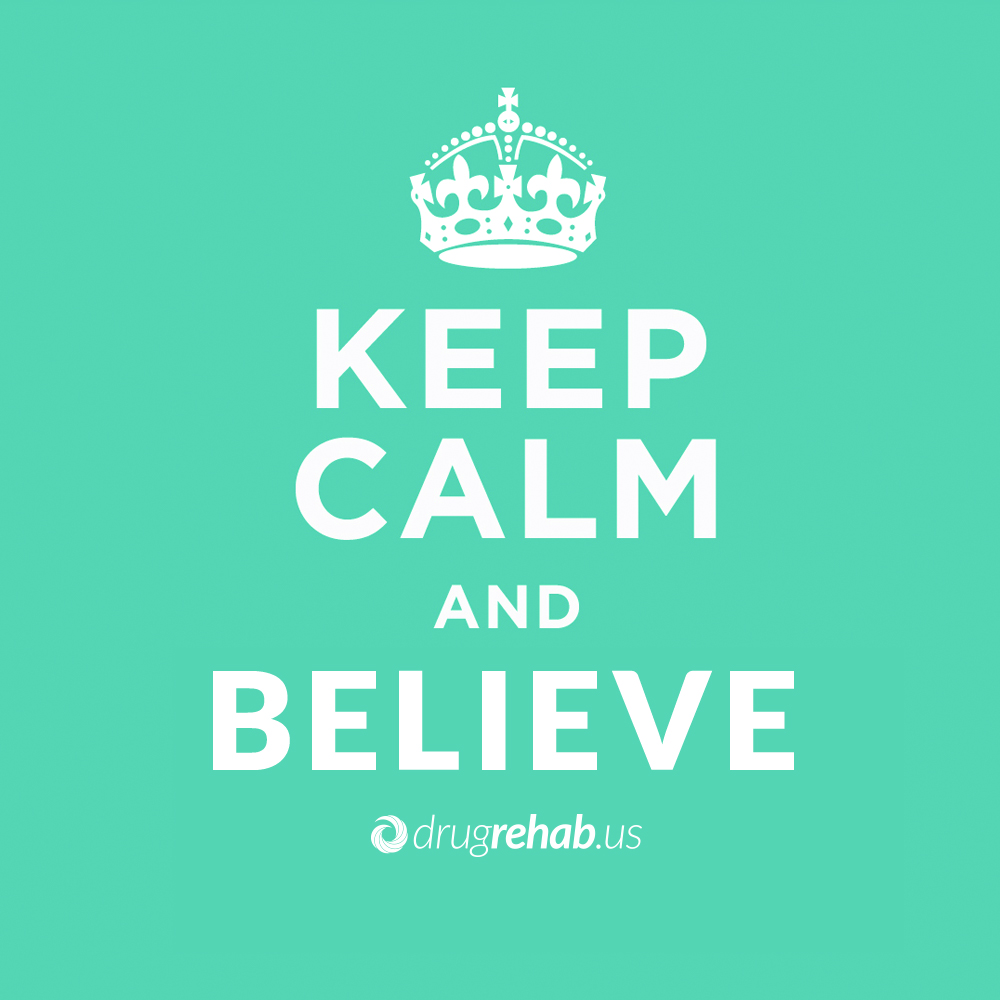 It is only natural to experience a sense of extreme guilt and feeling as if you have failed your child in some way. Seeing your child suffer can also cause you a tremendous amount of anguish and emotional pain. If you have done your utmost to help your child get into recovery, if you have expended your resources, you have done what you can. Remember that your child is capable of making decisions and his poor choices are not your fault. It is normal to still feel guilt and pain, but there are ways to cope.
It is only natural to experience a sense of extreme guilt and feeling as if you have failed your child in some way. Seeing your child suffer can also cause you a tremendous amount of anguish and emotional pain. If you have done your utmost to help your child get into recovery, if you have expended your resources, you have done what you can. Remember that your child is capable of making decisions and his poor choices are not your fault. It is normal to still feel guilt and pain, but there are ways to cope.
Realize that extreme feelings of guilt and pain are signs of a negative attachment to your child. Recognize this attachment and how it is harming you. Accept that your child makes his own choices and that you cannot force him to stop using drugs or alcohol. Focus your energy on yourself and on the positive relationships in your life. If your spousal relationship has been damaged because of your child’s addiction, work on it. Redirecting your focus will help you detach from negative and unhelpful emotions.
Getting Support For Family Addiction
A major issue that parents of addicts face is a lack of support. If your child had another kind of medical disease, like cancer, you could expect to receive all kinds of support from family and friends. Parents of addicts, however, often find their loved ones have turned away, thanks to the lingering stigma attached to the disease of addiction. Support is essential to coping, so find it where you can. Look for other parents who know what you’re going through. Support groups for loved ones of addicts can be a great resource. You might also work on those closest to you. Talk to your more supportive loved ones and explain that you need help and love.
Taking Care Of Yourself When Your Going Through The Pain Of Your Child Being An Addict
You can only help others if you are properly cared for and are well. Trying to help your child and suffering from the guilt and other negative emotions his issues have created, your own self-interests have probably fallen to the bottom of your list of things to do. You must find the time to take care of yourself if you hope to be happy again, to be able to help your child when he is finally ready for it or to re-establish a healthy relationship with your spouse. It may seem selfish, but find time to do something you enjoy, something just for you. Make the time to prepare healthy foods for yourself and include exercise or meditation in your day. These small gestures will make you better able to cope with your addicted child.
Having a child who is seriously ill is one of every parent’s worst nightmares. With the disease of addiction the feelings of helplessness and guilt can be especially powerful. If you can dissociate yourself from those negative feelings, find support and take care of your own health, you can cope with this. You will even be able to help your child when he decides it’s time to get clean.
Read More: What Can You Do When You Feel Helpless With Your Child’s Addiction? And Help Your Child Overcome Their Addiction!
If You Need Help With Your Child’s Addiction – Call Us Now – We Are Here For YOU
19 Sep 2014
Speaking Up About Addiction
Addiction is often a silent disease. While no one is ashamed to talk about having arthritis or high blood pressure, the disease of addiction has long carried a terrible stigma. Those struggling with addiction are too often looked upon, by others as well as themselves, as weak, morally inferior and lacking in willpower. It is difficult to speak up and speak out about the challenges of this disease, but when we do, we can make real, positive changes. Only with awareness and recognition will more addicts get the help they need, while future addictions are prevented.
The Power Of Awareness
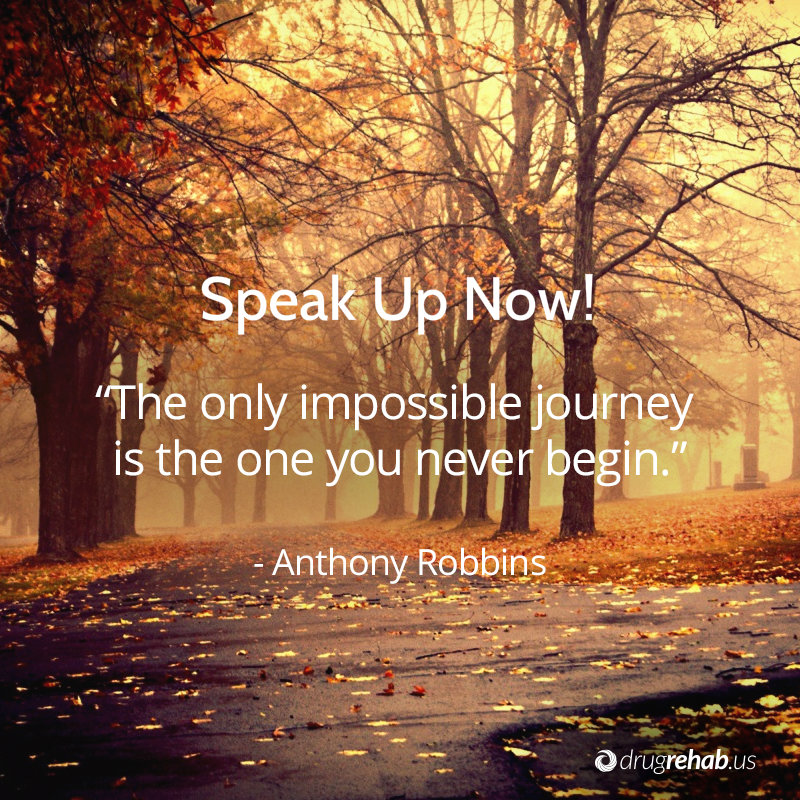 The expression goes that knowledge is power and it carries a great amount of truth. When something like addiction remains shadowed and hidden, ignorance is allowed to grow. When someone knows nothing about addiction, the lies and misinformation seep in along with assumptions and prejudices. Someone who is ignorant about addiction may not be aware that a friend, coworker, or even a family member is struggling with the disease.
The expression goes that knowledge is power and it carries a great amount of truth. When something like addiction remains shadowed and hidden, ignorance is allowed to grow. When someone knows nothing about addiction, the lies and misinformation seep in along with assumptions and prejudices. Someone who is ignorant about addiction may not be aware that a friend, coworker, or even a family member is struggling with the disease.
Raising awareness about addiction can be powerful. Spreading the word about how damaging this disease can be is a great way to prevent people from abusing substances in the first place. Prevention is the best way to help spare people from the pain and suffering caused by addiction. Raising awareness can even help motivate other people to help make a difference. Even for those who never had an interest in drug use or drinking, learning more about addiction can inspire anyone to get involved with helping others.
Awareness can also make big changes over the long term. It might feel as if one person, or one small group, speaking up and talking about addiction makes little difference. The truth is that it can have a snowball effect. Your efforts to reach others inspire the next person, and the next person. When enough people start speaking up, lawmakers start to listen, as do organizations with the means to fund research and treatment. The act of speaking up, even by one person, can be powerful.
Sharing Stories Of Addiction
If you have been impacted by addiction, whether your own or someone else’s, sharing that story is one important way to speak out and raise awareness. The more we speak about addiction and the more we hear about it, the more it loses its mystery and stigma.
Several organizations encourage and host events that allow you to get your story out there:
- The National Council on Alcoholism and Drug Dependence has named September National Alcohol and Drug Addiction Recovery Month. This event encourages people to learn about addiction and recovery as well as treatment options.
- The Substance Abuse and Mental Health Services Administration supports October as National Substance Abuse Prevention Month and provides ideas and events for people to share their stories and to learn more about addiction.
- The U.S. Army supports veterans battling drug addiction by encouraging everyone to learn more about addiction, treatment and recovery. It also advocates for celebrating the successes of those who are in recovery and sober.
When it comes to a disease laden with stigma, the only way to banish the shame and ignorance is to speak up. If you have battled addiction, if you have seen a loved one laid low by this disease, or if you simply care about the issue, speak up, spread awareness and help others learn more about the disease of addiction!
Read Our Other Empowering And Inspirational Posts
Overcoming Addiction Is Worth It & So Are You! – Let Us Help You Take That First Step – Call Us Now!
12 Sep 2014
The Power Of Education During Recovery
Education is a powerful force for anyone. Learning more about the world improves your quality of life. Earning degrees can help you get a better job, earn more income, and increase your sense of self-worth. For an addict in recovery, these are all important factors. Education can help you learn about your disease, about yourself and your choices, and can occupy your mind and take the place of thoughts about relapsing. Embrace learning and education to strengthen your recovery and your resolve to resist relapse.
What Should I Learn About Addiction?
 Your education begins as you work through your addiction. If you are getting professional help from a therapist, drug counselor, addiction specialist or a team of experts at a rehab facility, you are already learning about your disease. You are also learning about yourself and your motivations. These experts can help you investigate your choices and examine your past to help you learn how the disease of addiction has been at work in your life. This personal education can be a powerful way to help you heal.
Your education begins as you work through your addiction. If you are getting professional help from a therapist, drug counselor, addiction specialist or a team of experts at a rehab facility, you are already learning about your disease. You are also learning about yourself and your motivations. These experts can help you investigate your choices and examine your past to help you learn how the disease of addiction has been at work in your life. This personal education can be a powerful way to help you heal.
As you go through rehab you should also learn about addiction from an external perspective. Read up on how the disease works, how the drugs you have been taking have affected your brain and body, and how other addicts have coped and been successful in recovery. This knowledge is power and will only strengthen your ability to quit and stay sober.
How Can Education Help Me After Rehab?
Education can also help you stay sober after you have completed your rehab program. Rehab is a time for intense self-learning and for devoting yourself to learning about addiction and the role it has played in your life. Once you are sober and are firmly in recovery, education can help you stay that way. One of the most powerful tools to help you avoid relapsing is finding something, or many things, to replace your habit. Some people turn to religion, others devote themselves to exercise, while some develop new hobbies or are focused on work.
You can use any healthful activity to replace your addiction, but one of the best is education. Pick up wherever you left off. If this means going back to high school, enroll in an adult education program or work toward your high school equivalency diploma. If you never made it to college, search for programs that meet your needs. There many choices. Start out at a community college to take a couple of introductory courses, or apply to a university and start working toward a degree. If you have a career in mind, look for programs and schools that will help you achieve your goals.
By focusing attention on education and learning, there’s less room for thoughts about relapsing. Education can’t solve all of your problems, but it can be a powerful way to help you improve yourself, enhance your life, and stay clean.
What If I Can’t Afford To Go To School?
There are plenty of programs and scholarships that can help you get to school if you want to pursue an education. Furthermore, many schools offer night and weekend classes so that you can work while you earn a degree. Also consider that supportive family members might be willing to help you as you set off on a new, healthier stage in your life. Do whatever you can to get yourself an education so that you can get your life back on track.
Learn More About Preventing Substance Abuse Relapse


